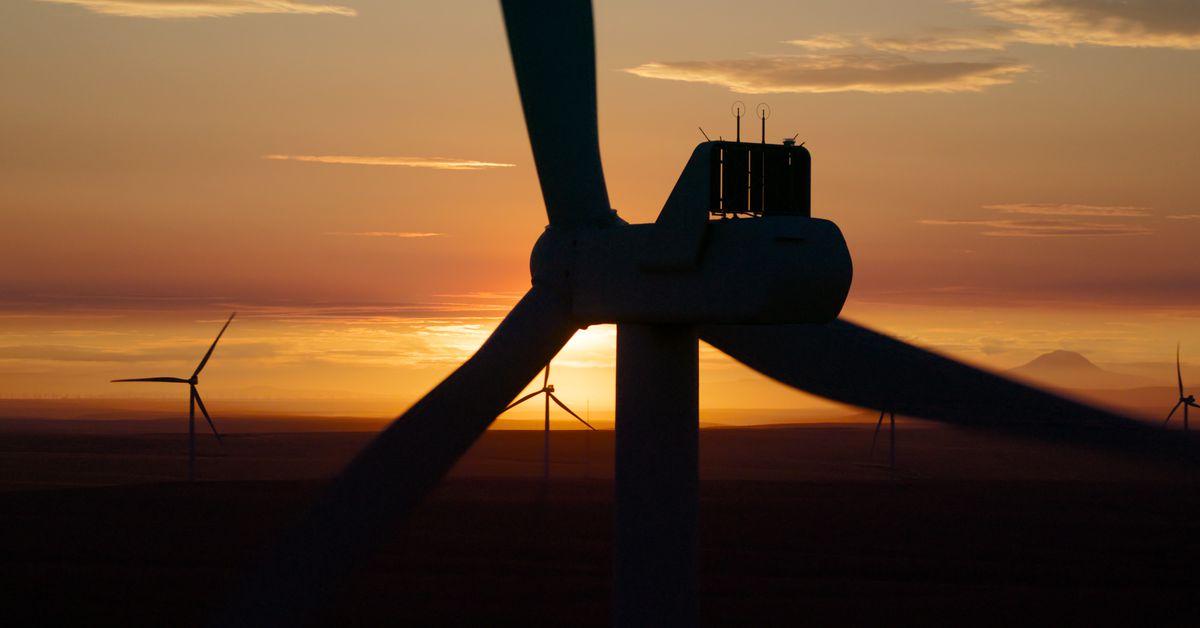Apple needs to disclose more information about its suppliers to back up claims about its first carbon-neutral products, says a new report by an environmental organization that had previously given the company high marks.
- Home
- Technology
- News
New report casts doubt on Apple’s first ‘carbon neutral’ products
Apple says its new watches are carbon neutral, but a new report says the company needs to share more information about its suppliers to back that claim.


Apple has backtracked when it comes to transparency about its supply chain emissions, the new report says. That makes it difficult to see how Apple is able to market its products as carbon neutral, meaning the company didn’t produce more carbon dioxide emissions than it could capture or offset while making the device.
“We believe there is a need for full disclosure and explanation of how Apple achieves carbon neutrality of its products, given the increase in carbon emissions from some of its suppliers.”
“We believe there is a need for full disclosure and explanation of how Apple achieves carbon neutrality of its products, given the increase in carbon emissions from some of its suppliers,” the report says. The report was published by the Institute of Public and Environmental Affairs (IPE), a nonprofit environmental research organization based in Beijing that was founded by former investigative journalist Ma Jun.
Apple released its latest Apple Watch models last month and said that “select” combinations of cases and bands make them carbon neutral. To reach carbon neutrality, Apple says it cut down emissions from materials, electricity, and transportation — with the help of suppliers who use clean energy. Any remaining pollution was then offset through nature-based projects like restoring forests so that they could capture more CO2.
According to Apple, more than 300 of its suppliers have committed to using “100 percent clean energy” for the production of Apple products by 2030. Apple itself has a goal of becoming carbon neutral across its operations, supply chain, and the life cycle of all its products by 2030.
But Apple stopped requiring that its suppliers publicly disclose data on their greenhouse gas emissions this year, according to the report. And based on data IPE was able to gather in the past, the math isn’t quite adding up:
What is puzzling is that with the global smartphone shipments down 12% in 2022, Apple’s supply chain emissions data, which we have collected through various channels, shows that carbon emissions from some of its suppliers have only decreased slightly, and in some cases are even increasing.
Apple says that “100 percent of manufacturing electricity is sourced from clean energy” for its Apple Watch Ultra 2, Alpine Loop, and Trail Loop. “Given that Apple’s suppliers do not publicly disclose their clean energy use and greenhouse gas emissions data, how can it be publicly verified that the manufacturing process for the three carbon neutral Apple Watch products uses 100% clean electricity?” the report says.
While more and more companies claim to run on clean energy, it’s actually really hard to do this because there just aren’t enough renewables like wind and solar energy online yet. To make those claims, many companies — including Apple — purchase Renewable Energy Certificates (RECs). The certificates are supposed to support clean energy projects and bring more solar and wind farms online, but the financial incentive isn’t always enough to make that happen.
IPE makes the point that there can be a lot of tricky accounting behind sustainability claims. For example, instead of using RECs to reduce the company’s carbon footprint as a whole, Apple could theoretically lump those RECs with certain products so it can say that specific devices are carbon neutral.
That’s not the case with Apple’s carbon-neutral watches, the company said to Inside Climate News. It also said in a statement that it asks suppliers to share emissions related to its products with Apple and that it works “closely with suppliers to help them procure more renewables.” The company also says that its new carbon neutral products have been certified by a third party, SCS Global Services. Apple didn’t immediately respond to a request for comment from The Verge.
The Verge has said it before, and we’ll say it again: the most important metric to look at is a company’s entire environmental footprint rather than claims about any single product. The company’s gross carbon emissions have fallen from 38.4 million metric tons in 2015 to 20.6 million metric tons of carbon dioxide in 2022, according to its latest environmental progress report.
Without that data, it’s hard to be sure whether a company is having any positive impact on the environment at all. While certain iterations of the Apple Watch are now carbon neutral, the iPhone 15 happens to have a larger carbon footprint than the iPhone 14.
IPE published investigations into pollution from Apple’s supply chain in 2011 that seemingly led to changes. Before Apple reportedly stopped asking its suppliers to disclose their emissions this year, the company received a “Master’s Level Designation” from the IPE in its Corporate Information Transparency Index in 2019. Apple touted that title in a 2022 progress report, calling the IPE a “leading” environmental research organization.
“In many years of our index assessment, Apple was one of the top performers, so we did give it credit for that, but when it started making the claim of [a] carbon neutral product, that is a very high standard and I think it needs an even higher level of disclosure,” IPE director Ma Jun told Inside Climate News.

Green Shirts face South Africa in third ODI today
- 3 گھنٹے قبل

Six terrorists killed, 16 security personnel martyred in South Waziristan face-off
- 3 گھنٹے قبل
PM orders strict action against tax defaulters, pushes for FBR digitisation
- 21 گھنٹے قبل
PM Shehbaz constitutes negotiation committee for talks with PTI
- 3 گھنٹے قبل
Renowned TikToker Khaby Lame performs Umrah
- ایک گھنٹہ قبل

Sigourney Weaver makes West End debut in ‘The Tempest’
- 19 گھنٹے قبل












